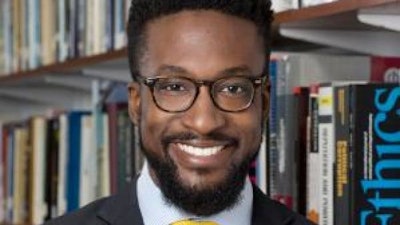Recently, yet another case of traumatic racism made the headlines. A two-year old Black girl (toddler) was fingerprinted and handcuffed by a white classmate during a play about Rosa Parks. While we often cannot know intentions, the impact of such incidence is profound. This is especially unfortunate as there are numerous cases of related forms of school-based discrimination in the U.S. From a developmental perspective, it is important for educators (and families) to know and understand that children notice racial differences earlier than they may think. Thus, the impact of this case and similar instances on impressionable young minds must not be discounted or trivialized. When educators are culturally competent in their dispositions, knowledge, and skills, these faulty lessons are less likely to happen.
 Dr. Winston C. Thompson
Dr. Winston C. Thompson
As an educational psychologist, I (Ford) would have to intervene to re-educate these two toddlers, along with their classmates, and school personnel. It is imperative that educators understand the damage done to these two children and the entire class. Educators must understand how to create and implement a curriculum that is antiracist and culturally responsive. At The Ohio State University, I teach a course by this title in the College of Education and Human Ecology. It is part of an antiracist certificate (described below). In the process of re-training (re-educating), educators must know how to critique curriculum, lesson plans, and course materials using the works of James Banks and my Bloom-Banks Matrix. This lesson plan with the toddlers under discussion can be placed at Banks’ additive level/approach. That is, the teacher appeared to be trying to implement a multicultural lesson plan, but it was done by infusing low-level, insufficient multicultural content. The lesson was culturally assaultive. I maintain that curricula must be at the highest levels of transformation and social action, which are grounded in empathy, critical thinking (e.g., multiple perspectives, opposing points of view), and problem solving. Students of all ages and from all racial, ethnic, and cultural backgrounds are accurately informed; they are empowered; and they have agency in developmentally appropriate ways.
As a philosopher with a focus on ethics in a social and political context, I (Thompson) find it essential to scrutinize not only the observable manifestations of racial bias (i.e., the particular behaviors or incidents) but also the underlying conceptual structures that sustain such biases (e.g., the institutional, interpersonal, and individual values, assumptions, etc.). In my view, the necessary and challenging work of repair begins in questioning the systemic structures that perpetuate racial biases in our educational institutions. Analyzing the background power dynamics and social hierarchies at play allows all persons involved to move beyond simple descriptions of intent toward more sophisticated analyses of impacts. Such scrutiny aligns with the broader goals of social justice, emphasizing the need to dismantle oppressive structures and cultivate environments that foster equality.
Below, we describe how psychological and philosophical approaches to enduring patterns of racial discrimination provide a firm foundation for meaningful antiracist work in education.
Importance of cultural competence and antiracism in education (philosophy)
Though some may claim that teachers need to teach only their formal subjects without attending to the broader social contexts of their lessons, philosophical analysis can highlight how that view is a deeply flawed mischaracterization of what students deserve.




















